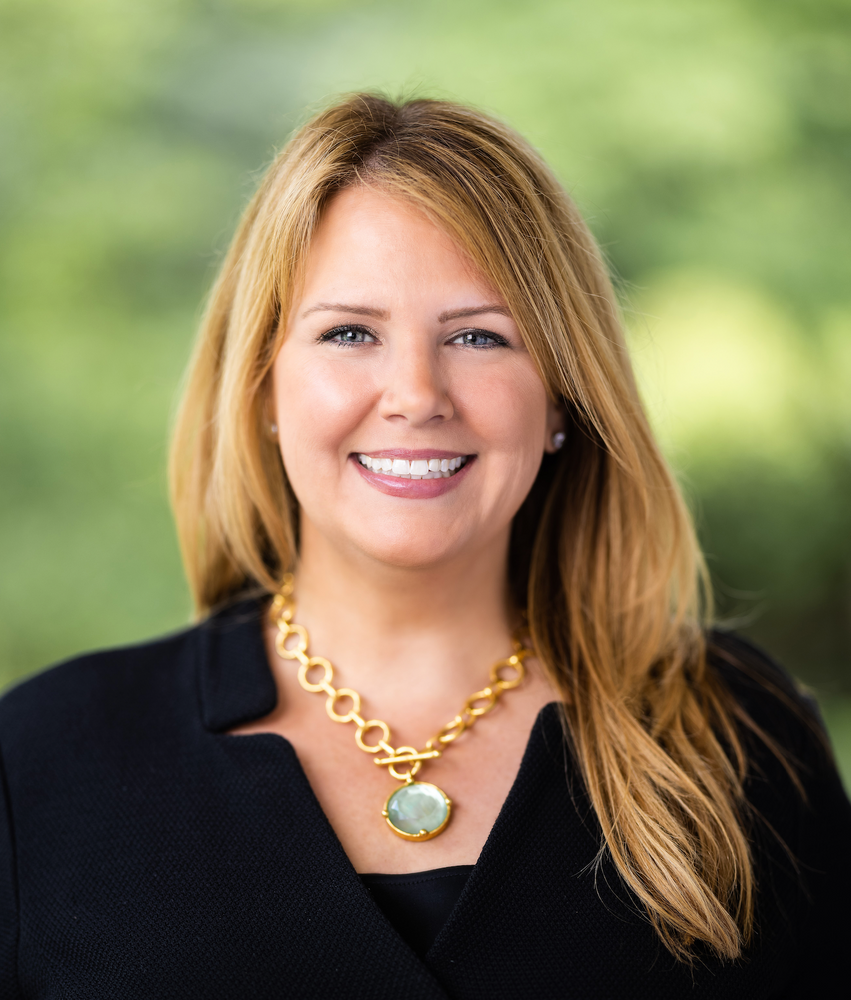Dear reader,
Welcome to the latest edition of The Forum File. In this edition, we are highlighting our firms’ work to promote financial health in low- and moderate-income communities.
We hope you enjoy reading this edition and please do not hesitate to share your feedback.
Kevin Fromer, President and CEO, Financial Services Forum
Penny For Your Thoughts
Christine Channels, Head of Community Banking and Consumer Governance, Bank of America
What programs does Bank of America have to help people in low- and moderate-income communities improve their financial health?
Financial health is at the root of strong, sustainable communities, and helping our clients build a solid financial foundation is fundamental to everything we do. We strive to connect our clients to products and services, job opportunities, and capital to increase financial resilience and help local communities thrive.
One example of how we bring these commitments to life in local communities is through our recently announced plans to expand access to free financial counseling in partnership with Operation HOPE. We’ve partnered with Operation HOPE for 30 years to support our shared mission of addressing economic inequality, financial illiteracy, and inequitable access to capital. Our program is designed to engage the underserved and improve the financial health of millions of people across the country.
We have already seen great results. On average, clients increased their yearly savings by $4,313; improved FICO scores by 21 points; and reduced annual debt by $837. We are expanding this program, called HOPE Inside™, to 180 of our financial centers in 17 U.S. markets beginning this year.
How important is financial literacy to achieving financial goals, and how does Bank of America help close the financial education gap?
We believe that financial health begins with awareness and financial education. A decade ago, we launched Bank of America’s Better Money Habits®, a free, online platform that connects people to relevant resources, tools and guidance to help them take control of their finances.
With programming available in both English and Spanish, Better Money Habits provides resources and advice on topics such as budgeting and saving, paying down debt, homeownership, retirement and more. These tools help people make informed financial decisions, putting them on the path to financial success. Better Money Habits is driving people to make real, lasting change to financial behaviors and improve their financial lives.
Outside of Better Money Habits, our teams are here to help clients set a foundation, build and strengthen credit and save if they can. We support and guide them as they think through, plan, and ultimately achieve their short- and long-term goals, step-by-step.
Our resources range from offerings in Bank of America’s mobile app, including our AI-driven virtual financial assistant, Erica®, to activating our own employee volunteers, known as Better Money Habits Champions, to improve the financial wellbeing of communities across the country.
How do these tools and programs help Bank of America make a difference in the communities in which it operates?
Our goal is always to help our clients build strong financial foundations. We help address financial inequality by focusing on how we can best meet the diverse needs of our clients, ultimately strengthening communities in the process. This requires a comprehensive approach.
In addition to our partnership with Operation HOPE, and resources such as Better Money Habits, we demonstrate our commitment to these communities through Community Banking: we have over 700 financial centers designated for community banking, and approximately 30% of our financial centers and ATMs are in low- and moderate-income and majority-minority communities. We have committed $15 billion to affordable homeownership, and another $15 billion through a commitment to the Neighborhood Assistance Corporation of America (NACA), with whom we share a 26-year partnership. Additionally, our efforts to advance racial and gender equality, economic opportunity and environmental sustainability include $2 billion in bonds and $2 billion invested with Community Development Financial Institutions to advance small businesses.
Value Add
Bank of America Investment in Minority Funds

Bank of America’s investments in minority-focused funds provide capital to Black, Hispanic-Latino, Asian, Native American and other minority and women entrepreneurs to help them establish and grow their businesses. These equity investments address a persistent gap in access to growth capital for funds led by diverse managers and equity funding for the minority entrepreneurs they support.
In January 2021, Bank of America announced investments in 40 private funds focused on minority entrepreneurs. In May that year, the bank announced that it was increasing its target for equity investment in minority-focused funds from $200 million to $350 million. To date, the company has surpassed its target, committing over $400 million in more than 100 minority funds. The funds will in turn deploy more than $7 billion in capital to U.S. small and mid-sized enterprises, primarily led by diverse and/or women entrepreneurs.
Beyond capital, our innovative approach is yielding broader benefits to the entire investment community. As an early investor in many instances, Bank of America serves as a catalyst, enabling emerging fund managers to attract other potential investors. The bank also provides these fund managers with access to other funds, investors and vendors by creating connectivity within the venture capital community.
These investments are a component of Bank of America’s overall commitment to advancing racial equality and economic opportunity, which focuses on social issues in minority populations, such as health, jobs, education, housing and capital inequality.
Capital Gains
What we’re doing in Washington
The Forum launched its new Policy Cents video series featuring Forum experts as they break down complex topics in the financial industry. In our first Policy Cents video, Forum Chief Economist Sean Campbell discusses the basics of bank capital and dives deeper into how capital requirements for large U.S. banks affect the entire economy. Stay tuned for our next Policy Cents video on large banks and the role they play in helping U.S companies compete internationally.
In response to a proposal from the Federal Reserve Board, the Forum commented on the agency’s efforts to provide guidance for banks to address climate-related financial risk and provided specific recommendations on how the proposal could be adjusted. The Forum’s feedback was similar to that provided to the Federal Deposit Insurance Corporation and the Office of the Comptroller of the Currency in response to their earlier proposals.
The Forum announced that State Street Chairman and CEO Ron O’Hanley had been elected to serve as the chair of its board and Citigroup CEO Jane Fraser had been elected to serve as vice chair. O’Hanley replaced Goldman Sachs Chairman and CEO David Solomon, who served as chair of the Forum for two years. Fraser replaced O’Hanley, who served as vice chair. “The Forum is an important voice in Washington for our nation’s largest banks,” O’Hanley said. “I thank David for his outstanding work guiding our board, and I look forward to leading the organization at a critical moment for our country. The institutions that I and my colleagues lead have shown that they are a bulwark for the economy even in the midst of many challenges, most notably a global pandemic. The Forum will continue to prioritize working with policymakers to foster a strong financial system that supports a vibrant, healthy economy for all Americans.” Said Fraser, “I am proud to join Ron in leading the Forum as we work to promote policies that maintain a strong, safe and sound banking sector, which is vital to the health of households, large and small businesses, and to the competitiveness of the U.S. economy.”
Our Two Cents
Research from the Forum
The BankNotes Blog spotlighted research on both the direct and indirect costs of bank capital regulation and how a substantial increase in bank capital requirements could raise annual borrowing costs by roughly 0.25 percentage points, costing the economy over $100 billion per year and also incentivizing continued growth of the shadow banking sector.
Checking the Balance
Members in the news
Bank of America is investing up to $150 million to preserve more than 3,000 affordable homes nationwide in partnership with Enterprise Community Partners, one of the nation’s largest affordable housing organizations. The partnership will foster the long-term preservation of middle-income homes by investing equity capital to acquire properties that are at risk of being converted into unaffordable, market-rate homes.
BNY Mellon’s Treasury Services business received two awards in Global Finance’s World’s Best Trade Finance Providers 2023 Awards, reflecting its commitment to providing innovative trade finance capabilities. The bank was named “Best Trade Finance Provider – Bank” in both the Global and North America categories, highlighting BNY Mellon’s role as a robust and reliable trade finance provider, as well as the firm’s efforts in driving innovation through investments in new technologies.
In January, Citi released its latest report on supply chains, entitled: “Supply Chain Finance: Uncertainty in Global Supply Chains is Going to Stay.” The report analyzes comprehensive data and survey evidence to reveal that while supply chain disruptions are subsiding, enhancing resiliency remains a top priority for businesses and institutions around the world.
Goldman Sachs’ One Million Black Women has partnered with Mastercard and New York City Mayor Eric Adams to create the $75 million NYC Small Business Opportunity Fund, the largest public-private loan fund for small businesses in the city’s history. The partnership will also work with local Community Development Financial Institutions.
JPMorgan Chase President Daniel Pinto, and Head of Strategic Planning Rosa Ramos-Kwok were named to Bloomberg Línea’s inaugural 100 Most Influential Latinos list. The lists highlights Latinos who are leading innovation and representation throughout various industries around the globe.
Morgan Stanley partnered with PeopleShores on a new initiative, Project Elevate, to help elevate people in economically and socially challenged neighborhoods with technology skills and practical experience to advance their career opportunities. The companies created a Technical Talent Development and Impact Sourcing Technology Center in Brooklyn, New York, designed to educate, employ and empower participants by providing work experience and professional development.
State Street partnered with four Black-owned businesses to underwrite $1.25 billion of senior unsecured debt. This partnership reinforces State Street’s commitment to strengthening Black-owned businesses and represents an ongoing effort to partner with Black and Latinx-owned investment firms, as well as firms owned by other underrepresented groups, as part of its debt offerings.
Wells Fargo announced a $20 million Invest Native initiative to advance economic opportunities in Native American communities working with Native-led organizations. The initiative aims to address housing, small business, financial health, and sustainability among Native American communities in Arizona, Montana, New Mexico, North Dakota, South Dakota, and Wyoming. The announcement builds on the company’s previous five-year, $50 million commitment to address American Indian and Alaska Native communities’ unique economic, social and environmental needs.
